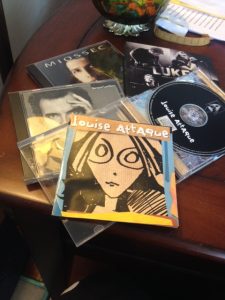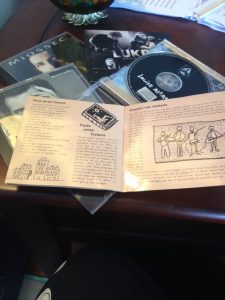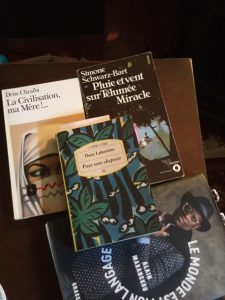Here Are Several Tips To Improve Your Language Skills
Part 1:
My students often ask me how they can improve their language skills. Of course there are some obvious answers, but sometimes it is not such a simple question. My answer really does depend on the student’s situation, where they live, what their level is and what they have the opportunity to do around them. It will depend on whether they are living in the country where their target language is spoken, whether they have friends or family that also speak this language, and so forth. Therefore, I wanted to create this blog to discuss some of the options that my students might consider trying. Add to the comments below your tips, or what you think of these mentioned here. As this started to become very long, I will have a part two coming soon.

Talk to Yourself
Obviously, the best way to improve your language skills is to get a tutor, but we will discuss that later. If you have no one with whom you can practice your language, why not talk to yourself? I know it may sound silly, but let me explain This is a very valuable technique and one which I think often gets overlooked. Anytime I ever tried to learn a language or even practice one I knew well, I would find myself thinking about how to discuss a situation in which I might find myself and pondering the way I would or could express it. I could be on a bus or in a café while having an imaginary conversation with someone about what I did earlier, how I would say it, searching for the vocabulary I would need to have for this conversation. Then, possibly I would realize that I don’t know a certain necessary or important word, which would then lead me to the question of how I could rephrase it or describe the word that I am missing. Oddly enough, this kind of preparation could help a lot when you actually do find yourself having that very conversation one day. Maybe you imagine describing what you cooked earlier, what your recent trip was like, what kind of work you do, the book you’re reading now, or any other type of conversation you could have with a stranger or friend you encounter somewhere. When I was in Japan, I was alone and struggling with Japanese. I imagined any number of ordinary situations where I would have to talk to someone. It often helped later when I did have to have that discussion. Sometimes I would even go home later and search for the words I realized I didn’t know or ask a friend for help with it.
Labeling/ Signing
Labeling things in the house with little sticky notes is something I did when trying to learn Latin. It is another very useful technique, especially if you are at the beginning stage of learning vocabulary. Even more than that, in fact, you can take advantage of all those moments when you are doing something monotonous like brushing your teeth, washing the dishes, or folding the clothes by sticking up verb conjugations, word lists etc, by the place where you stand doing those things. Even just momentary glances at those lists can help with the memorization of words and phrases while you work.
Sing Along With Music
Discovering great music in the language you are learning is a great way to help you along with your language skills in terms of vocabulary, fluency, rhythm, intonation, pronunciation and speed. I recommend finding good song writers, though. Watch out for pop songs that use too much slang or dirty language. That is why I recommend that you choose carefully; otherwise, you might risk learning some bad habits, or too much colloquial or informal language before really understanding it. Getting the lyric sheets or CD booklet to read along as you listen will be helpful in the beginning, not only to understand the words but to learn them as you listen. However, sometimes I just try to learn the words by listening to the songs over and over again. That is why I suggest finding something you like. Over time, I learned the words, started singing to it, while trying to keep up the speed. It was really challenging at first, but it made me so excited to be able to eventually keep up and sound native! Ask me for my recommendations for French music.
Read, Read, Read…
As I have written in many previous posts (Jan 2021), reading is one of the best ways to improve your language skills. You can search some of my older posts for information on why and how to go about it. I really stand by this one, as it is tried and tested and proven to work. I have rarely spent more than a few weeks in France and yet managed to develop a fairly good vocabulary, fluency and C2 level of French. Yes, I studied for many years in school. Despite that, upon leaving my program, I still felt as if my speaking level was lower than it maybe should have been after all those years. I feel that I mostly improved my speaking skills through abundant reading. Now, I am not saying to pick up any novel and just start reading if you are not at an upper intermediate or advanced learner. At A1 or B1 levels, I think it is useful to pick up what’s called a “graded reader”. These are student editions of popular novels, classics etc, scaled down to a certain language level with a certain vocabulary base, so that it can be understood by language students at that level. If you are a beginner, you may look for A1 or A2 readers, intermediate level B1 or B2, or maybe you are advanced then you can search for C1 or C2. These readers may have vocabulary listed in the margin, at the bottom or a glossary for students, maybe even comprehension and vocabulary exercises. For English learners there are the Penguin classics. For French learners there are all kinds of such readers. They are designed to be self-paced; however, I still think that these are probably useful done in coordination with a tutor.
Easy Readers/ Facile a Lire series: http://www.easyreaders.eu/french.aspx
Eli International: https://www.elionline.com/francais-fle/?idc%5B0%5D=482
Black Cat CIDEB: https://www.blackcat-cideb.com/en/catalogue/french/
Hachette Lire en francais facile readers: https://www.hachettefle.com/outils/hw_education_disciplines/lecture-13490

Cle Language direct easy reader: https://www.languages-direct.com/shop-by-language/french?book_format=278
Stay tuned for more tips. In my next post, I am going to discuss why teaching someone else might be one of the best ways of better learning what you are studying, as well as three other tips. As always, language learning is a life-long journey. There will always be something new to learn. Multiplying the number of things you do and varying your experiences will make it easier and sometimes even more fun.
